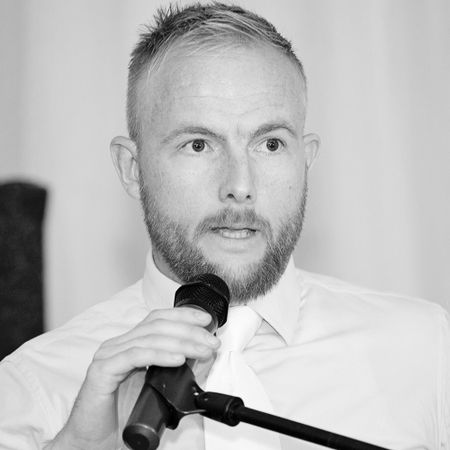In a country where, according to Statistics South Africa, more than 80% of the population identifies as Christian, it isn’t surprising to hear or read about professing Christian leaders and members of the wider citizenry, especially those competing for political office, calling for “godly governance”. These calls, furthermore, and understandably so, tend to become more regular and pronounced in the time leading up to the country’s elections — be they local or national.
What does “godly governance” mean, however, and are Christian calls for this kind of governance something citizens who care for democracy and freedom, both Christians and non-Christians alike, should be concerned about?
In the words of theologian James Stamoolis, for example, “a government that declares itself to be operating on Christian principles effectively undercuts certain potential opposition.” Then there are those like the ANC and Adolf Hitler, who, taking one and two steps further respectively, claim they will rule until Jesus comes back, or, cast themselves as a messiah.
Add to the notion of “godly governance” the ideas of “kingdom governance”, “a Christian nation”, “a strong Christian government,” a “Bible-based political party” and things become further complicated and potentially hazardous for democratic ideals.
The category, “strong government” could include a range of governance forms, from Nazi Germany, through any one of the best-governed countries in the world before Covid-19, to present-day Australia. And, what is a “Christian government”? Is this a government made up entirely of professing Christians, or, rather, leaders of any religion or no religion, who happen to pursue the exercise of “godly governance”? There it is again.
Whether South Africans should be concerned about calls for “godly governance” depends to a substantial degree on how those making such calls conceive of the idea, and then, on the extent to which they clearly communicate their understanding thereof in the public square, if at all.
Those who hear leaders calling for “godly governance” without those same leaders defining the concept in the context of South Africa’s constitutional democracy, will develop their own ideas as to what precisely these leaders mean and what the implications could be for democratic governance and freedoms should such leaders and their political parties come to occupy public office, assuming they don’t do so already.
Put differently, where leaders prove ineffective in conveying precise meaning while communicating their vision of a better future and a more desirable kind of governance, those looking and listening are likely to fill the resulting conceptual void, whether knowingly or not, with their self-made definitions. Self-conceived observer definitions of “godly governance” may prove counterproductive to the good governance or democratic ends the leaders concerned may be working to achieve in the first place.
For example, how many uninformed or ill-informed South Africans will hear a call for “godly governance” or come across a slogan like “strong Christian government” and become suspicious or fearful as these phrases bring to mind “theocracy” and imaginations of a future involving restrictions on human freedoms?
In South Africa, as some or many citizens will already be aware, the NG Kerk, among whose congregants were my ancestors and present-day family members, provided the doctrinal support that made apartheid a supposedly “godly form of governance”.
Dion Forster, Professor in Public Theology at Stellenbosch University, explains why South African Christians should prefer a secular state, and more specifically, the kind of secular state in which “the government of the nation doesn’t have any particular religious conviction”. This means citizens will have equal rights and protections before the state, irrespective of their religious or non-religious affiliation. Forster emphasises the need for religiously neutral secularity and not anti-religious secularity.
The cognitive tensions arising from undefined and unqualified calls for “godly governance” potentially serve to push prospective voters away from leaders and political parties that, had they been elevated to offices of higher authority, could have been good for South African democracy and governance.
The argument for Christian leaders to properly define what they mean by “godly governance” is especially pertinent in a continent and country where professing Christians have used the Bible to justify all kinds of atrocities and exploitation committed upon and against God’s creations.
European settlers, among them my ancestors, used the Bible as a means by which to exploit indigenous Africans, for example. Kenya’s first president, Jomo Kenyatta, when describing the methods of British missionaries in his own country, said, “when the missionaries arrived, the Africans had the land and the missionaries had the Bible. They taught us how to pray with our eyes closed. When we opened them, they had the land and we had the Bible.”
In South Africa, as some or many citizens will already be aware, the NG Kerk, among whose congregants were my ancestors and present-day family members, provided the doctrinal support that made apartheid a supposedly “godly form of governance”.
Could these historical realities, among the more contemporary abuses that South Africa’s professing Christians have committed, help explain why the citizens of a supposedly Christian majority country, in the present day, trust independent broadcasters, government broadcasters, the Department of Health, the army, and the courts of law, more than religious leaders?
Whatever the reasons for South Africans’ relative distrust of religious leaders may be, Afrobarometer findings, following a study on levels of trust in South Africa’s institutions, support the argument that Christian leaders who make calls for “godly governance” need to be explicitly clear about what they mean.
How Christian and non-Christian leaders, including those operating in the political realm, use religiously oriented language in a country as religious as South Africa is vitally important. How Christian leaders in particular use language has consequences not only for South Africa’s democracy but also, from a biblical perspective, for the witness of the Church. Christian leaders and their followers should be concerned about both. DM




